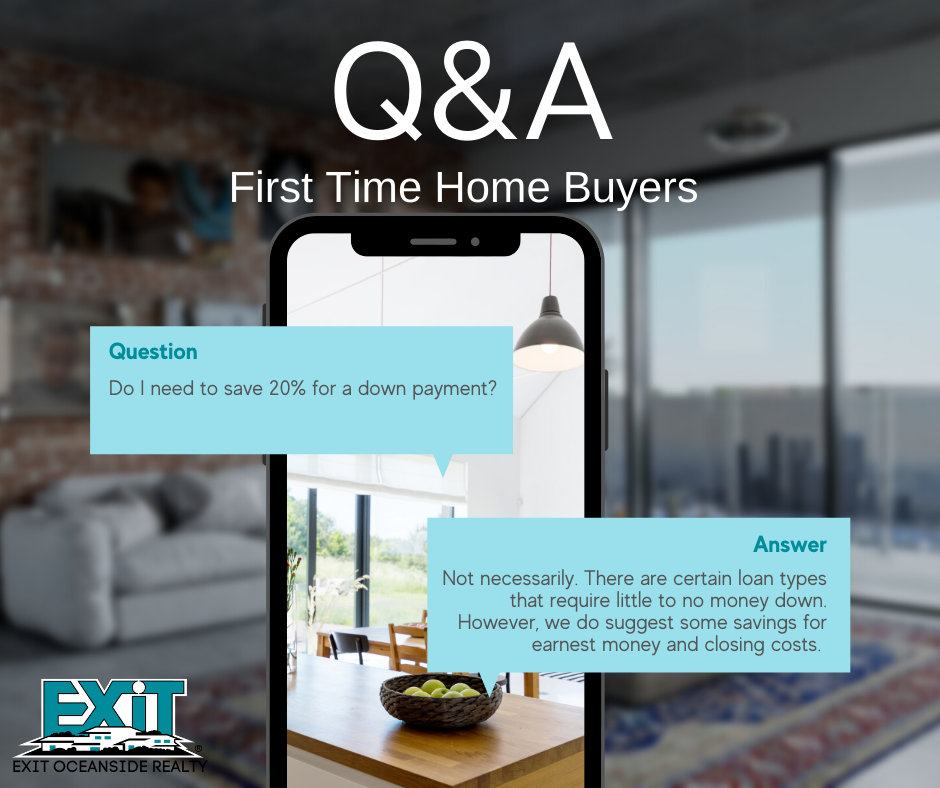Home Buyers: Frequently Asked Questions, Answered

When you're buying a home, especially if you are a first-time homebuyer, the process can be overwhelming and confusing. We find that there are consistently aspects of the home buying process that buyers have questions about or don't fully understand. Our goal is to make sure that our clients are clear about all aspects of the process.
Today we answer many of your most frequently asked questions about the home buying process.
Why do I need a real estate agent?
A realtor is an industry professional. His or her sole responsibility is to represent your interest. Realtors know the area and have the inside track on what is on the market. They can advise you on the home buying process, local laws, and unfamiliar terms.
How much does a buyer's agent cost?
Many people are hesitant to retain a realtor because they don’t know if they can afford it. What they don't understand is that the fee for both agents is a percentage of the total cost of a home- typically 6%- split between them. And while this fee is technically paid by the seller, it’s factored into how much sellers list their home for.

Why do I need to be preapproved?
There are tons of reasons why it is our policy to ask all buyers to get pre-approved before looking at homes. Most importantly a pre-approval can help you understand how much home you can afford. There is no reason to look at $500,000 homes when you can really only afford $300,000. A pre-approval can also help you to understand where you stand financially. If the pre-approval is for an amount lower than what you were hoping for, at least you know where you stand and can come up with a plan to get in better financial shape. If you’re a first-time home buyer you’ll want to get an idea about what kind of first-time-homebuyer programs are available.
Should I buy or continue to rent?
This is an important question to ask yourself. While buying a home is a solid investment for some people renting is the better choice. Interest rates are currently at historic lows meaning that mortgage payment can often be less than paying rent. However, before deciding to buy, ask yourself: How long are you planning to stay in the home? Real Estate is often a long-term investment in order to see a return. If you plan to move soon it may make more sense to rent. Are you prepared for the additional responsibilities of owning a home? Are you able to cover the costs of maintenance and emergency repairs? If your furnace breaks or there’s mold in your basement you are responsible. You’ve accounted for mortgage and insurance, but what about snow removal, and furnace cleaning? We are excited for you to become homeowners but we want to help you make the smartest choice for YOU.

Can I find a rent-to-own property?
While not impossible the likelihood of finding a rent-to-own property is slim. We are often asked if they exist or whether an owner would consider that option. Here is what you need to think about when considering rent-to-own- the owners are taking on a high risk since in most cases, a rent-to-own buyer has a low credit score. When taking on the higher risk the terms must be considerably more favorable for the owner i.e. less favorable for the buyer. In instances of rent-to-own, you can expect to provide a considerable down payment, a higher interest rate, and a higher purchase price. In the end, if you are able to purchase through conventional means, it is the route we would suggest.
I already own a home. Should I buy before I sell?
There is truly no concrete answer to this one. There are pros and cons to both options.
Buy Before Selling
The biggest benefit to this is that it reduces the stress of trying to find something suitable once your current home is sold. The downside is that if you are unable to finance a new home without selling your current one any offer you place will need contingencies- note that you can only buy if you sell- which can make it less desirable or mean you lose your desired home if your current home doesn't sell.
Sell Before Buying
Selling your current home before buying will put you in an ideal position to negotiate for your new home. The risk is that you may end up with nowhere to live. However, there are options if your home sells before you are able to find another. A “rent-back” can sometimes be negotiated with the buyer of your current home. In this instance, a seller can remain in the home for a set amount of time after closing in exchange for paying the buyer’s mortgage for that time.

How does the inspection phase work?
Inspections are another common contingency that a buyer will make their purchase offer subject to. There are many different types of inspections that you have the right to perform, however, keep in mind that in most cases these tests are performed at your expense. In your purchase and sale contract, we will specify how many days we will need to complete the inspections and how many days we will need to either remove the contingencies or request repairs or compensation for the findings.
What happens if the appraised value comes in too low?
If you are financing any part of your home purchase the bank will require that the property is appraised before the mortgage is approved. If the home appraises for less than the agreed-upon sale price the bank will not approve the loan for more than the appraised value. In this case, buyers have a few options:
1. You can increase the down payment to make up the difference. For example, if you are buying a home for $300,000 and it appraises for $290,000 the buyer can $10k more in down payment.
2. Another option is to shift some of the down payment to cover the gap. For example, if you were going to put $60,000 down on a $300,000 house (20% down payment) and the appraisal comes in at $290,000 you can shift $10k of the down payment to make up the difference.
3. You can appeal the appraisal. If you feel that the appraiser used incorrect information, bad comps, or was unfamiliar with the area.
4. If none of that is an option you can cancel the contract. While this is not ideal, if the buyer signed an appraisal contingency, you can cancel the contract and walk away.
What is title insurance and why do I need it?
When you purchase a home you are purchasing the deed or title to the property. Once you own the deed you are responsible for any number of issues that can arise from errors in the ownership records of your home or property. Title insurance can compensate you for damages or legal costs in the event that there are previously unreported liens and easements, forged transfers of ownership, unintentional errors in documents, and any other issues that existed prior to the start of your policy.
What is a home warranty?
A home warranty is an optional insurance policy that provides for discounted repair and replacement service on a home’s major components, such as the furnace, HVAC, plumbing, and electrical systems. A home warranty may also cover major appliances, such as washers and dryers, refrigerators, and swimming pools. Usually, your homeowner's insurance doesn't cover these items or the cost of repairing them. While some buyers find it invaluable when taking on equipment that you are unfamiliar with, others feel it is an unnecessary expense.

What are closing costs?
Closing costs are fees associated with your home purchase that are to be paid at the closing, the meeting where ownership of the home is transferred to you. Closing costs are typically between 2 and 5 percent of the purchase price of your home. Within 3 days of receiving your loan application, your lender should provide you with a Loan Estimate, which will include an outline of the estimated closing costs of your home. Remember that many fees that are included in closing costs are negotiable, so make sure you shop around for lenders with lower fees. At least three business days before closing, the lender should provide a Closing Disclosure statement, which outlines closing fees.
What happens at Closing?
Closing is when you finalize your home buying transaction. On the day of closing, you want to bring 2 forms of identification, copies of any documents you’ve signed during the process, and payment for closing costs. There are 6 steps to a closing:
1. You will review and sign your loan documents such as your deed, promissory note, and closing disclosure.
2. You provide documentation of homeowner insurance and inspection if required.
3. You provide the down payment, closing costs, prepaid interest, taxes, and insurance.
4. The lender provides the funds for the cost of your home to the closing agent.
5. Depending on the loan you may also need to set up an escrow account for taxes, insurance, etc.
6. You receive the keys to your new home.
Clearly, this list is just scratching the surface of questions you may have about buying a home. Ultimately the best way to get your questions answered is to contact a Realtor. Especially as a first-time homebuyer you want to find a realtor with the soul of a teacher- someone who is happy to answer your questions and help you learn through the process. There is no shortage of great Realtors at EXIT Oceanside Realty. Call today! 207-646-8333





